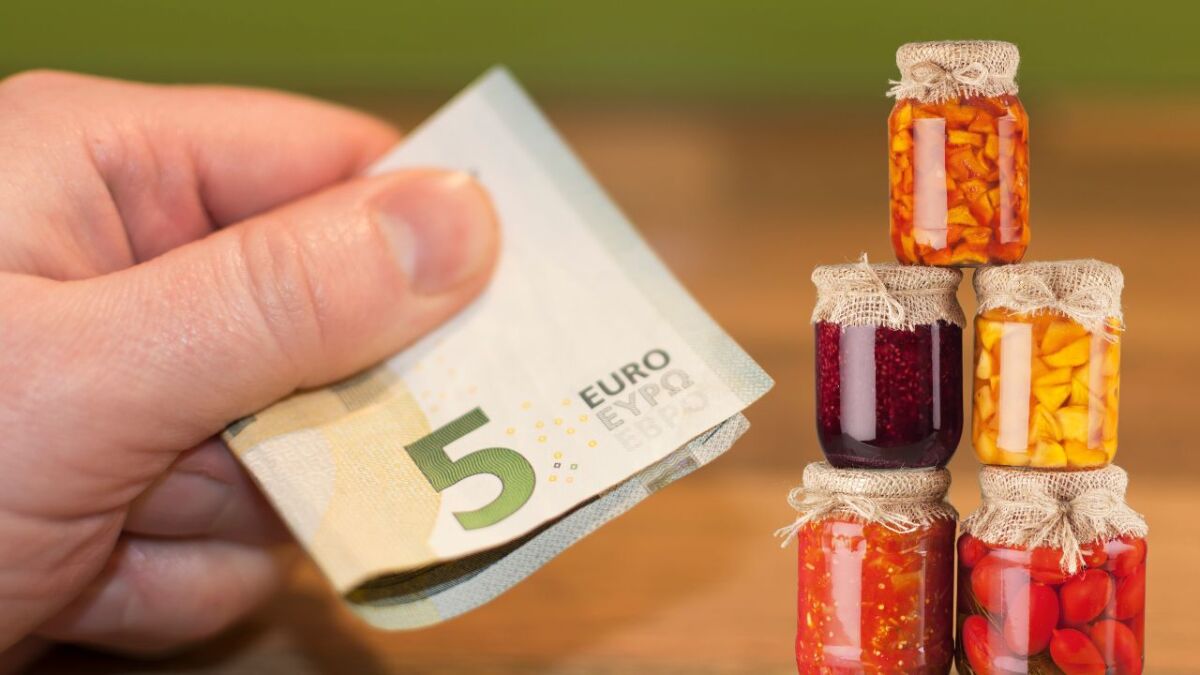
Preparing with a small budget (with little to no money) - how to get started?
👉 The key facts from this guide
- Want to save money? Rethink your past decisions and investments. You are responsible for all decisions and consequences.
- Assess your personal risks and prepare for the most likely scenarios.
- Only buy what you really need and invest in learning survival skills.
- Find like-minded people and share your plans with those directly affected.
- Avoid wasting time and money. Start prepping now.
- Recycling, buying cheap food and water, and purchasing used or durable items can help save costs.
Even though it may sound like it, you don't need extensive financial resources to prep.
You may not be able to immediately buy the best equipment on the market. However, that doesn't mean you can't prepare for exceptional scenarios.
Prepping is primarily about making decisions that correspond to a certain mindset.
Because all the money in the world won't help you move forward if you approach things with the wrong attitude.
So let's explore today how you can prepare for crises or disasters with a small budget.
Becoming a Prepper with Little Money - Is That Possible?
Yes, it is possible to become a prepper with little money. Provided you're willing to invest time in planning and collecting supplies.
However, it's not as easy as it sounds, and it requires some creativity and planning. Below are some tips on how to achieve this goal.
Regardless of your budget, you should consider the following:
- Rethink your previous decisions, which investments were worthwhile and which were not?
- From now on, you alone are responsible for all decisions and consequences. No more excuses!
- So, you want to prep? Specifically, what do you want to prepare for and what specific risks are you exposed to?
- What do you really need?
- Learn skills that could help you!
- Find like-minded people!
- Share your ideas and lifestyle with the people closest to you who could be directly affected by your endeavors.
- No more waste of time or money, you don't have much of either!
- Start NOW!
I will, of course, illuminate the mentioned points in more detail for you in this article, so that you know exactly what is meant and how you can implement them. No one will be left in the dark here.
Rethink your previous decisions!
Especially now, if you want to start prepping despite having a small budget, your decision-making process is an essential point.
In the future, you will have to pay very close attention to which investment you make, how, when and why. Considering this, a brief look into the past will help you.
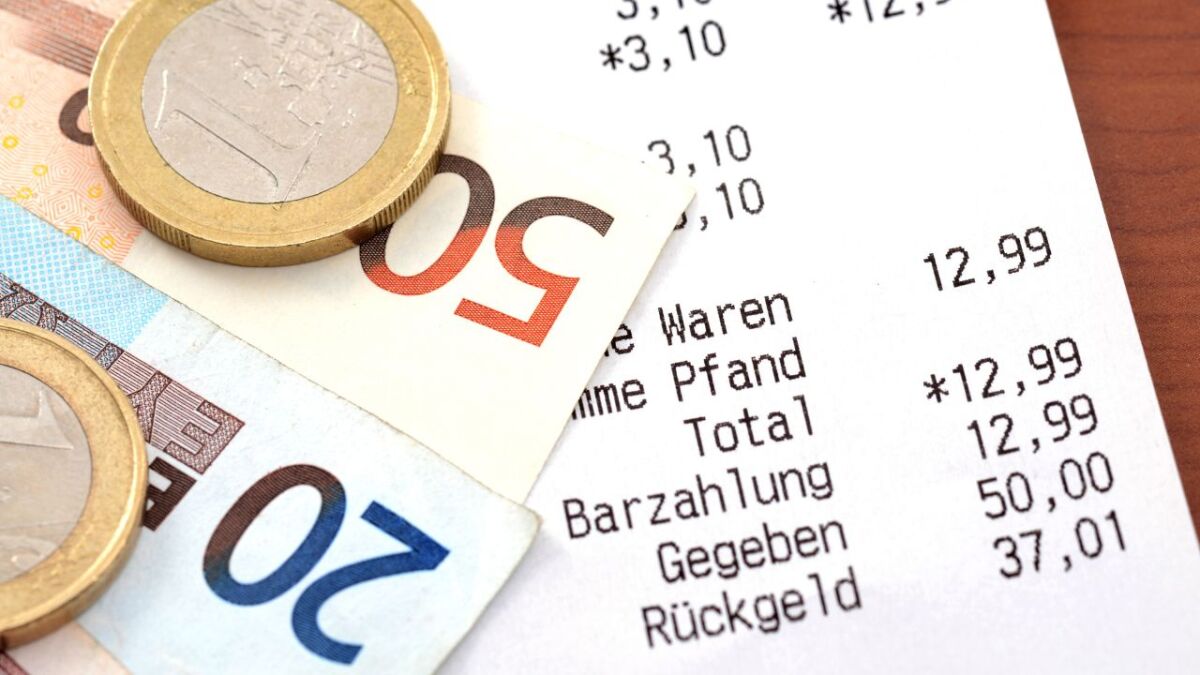
Review past decisions and investments and consider how they fit into the prepper lifestyle. Were you perhaps very wasteful at times? Then that should be over with now!
Did you make your decisions very thoughtlessly before and think to yourself: "It'll be fine!"? That should also come to an end now.
Resources are limited, and you should always be aware of that.
Approach your project not overly cautiously, but nevertheless thoughtfully and deliberately. Old patterns that no longer fit into your lifestyle and everyday life should be discarded.
You are responsible!
Especially in today's time of incessantly advancing technological progress, the internet and social media, most people are reluctant to take responsibility for their actions, and especially for their failures.
After all, there is always something or someone that you can find to take responsibility or blame for you, right?

As of now, that's over.
Understand that all the decisions you make in the future will have an immediate impact on your future and possibly the future of your loved ones.
While you may not have much control over the disasters that may befall you, you do have control over how well-prepared you are for them.
Assess your personal risks!
So, you want to start prepping, but you don't have many options in terms of your financial situation?
No problem because there's a plan for that.
You need to weigh exactly what you should prepare for.
That means thinking about what your priorities are.
For example, if you live on a dream beach in Greece, you probably won't need to stock up on thick furs for the winter.
So check which exceptional situation you might be most affected by and prepare specifically for it.
Remember that your financial resources are limited, and so you should mainly be prepared for scenarios that could actually affect you in the near future.
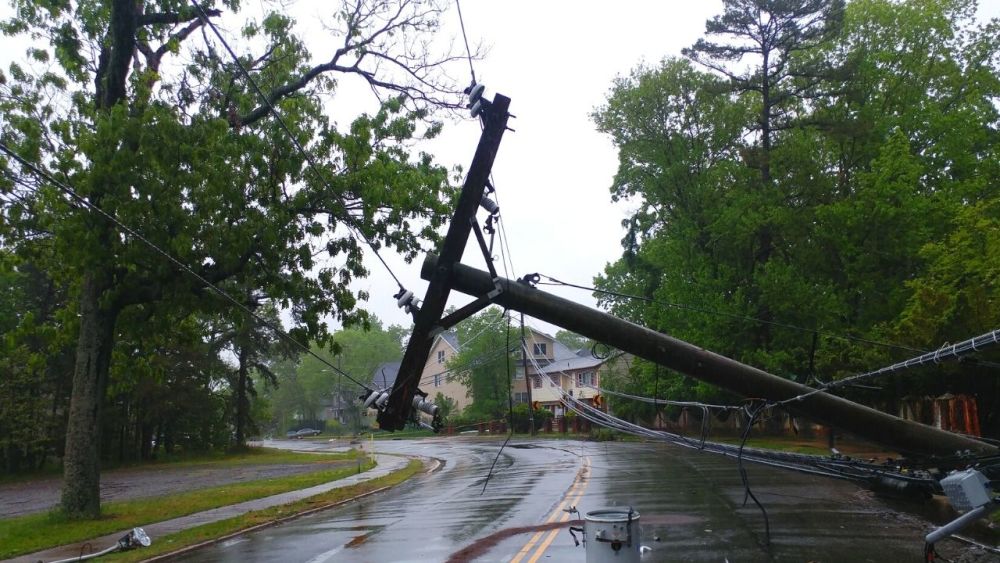
An example:
If you currently have about $1,000 available, you should divide it accordingly.
Let's assume you live in an area known for its cold and harsh winters. At the same time, an energy crisis is brewing that is having a significant impact on heating costs. Since you don't have much money anyway, this fact affects you even more.
It would be wise to prepare precisely for this situation, namely a hard winter without the possibility of heating your own four walls. Coupled with a complete energy crisis, the situation becomes even more challenging for you.
So, it is best to invest 50%, that is $500 of your budget, in stocking up on supplies that you need. By that, I mean food, water, first aid kits, hygiene items, and anything else you might need. It is always essential to build a foundation that you can rely on later on.
You can either use the other 50% entirely to protect yourself from bitter cold by stocking up on blankets, firewood, gas, or oil supplies (if possible, depending on the type of heating), or you can split it up again. The important thing is that you invest the limited budget in the things that you really need.
Read also
Guide: How to Heat Your Home Without Gas During a Gas Shortage - The complete guide to heating your home without gas is a compilation of the best ways to keep your home warm in the face of a gas shortage.
What do you really need?
To pick up on the previous section, here's a little reminder for you: Only buy what you actually need.
Does it really have to be the most modern flashlight equipped with integrated Morse codes, compass, digital clock and star map, but costs $400?
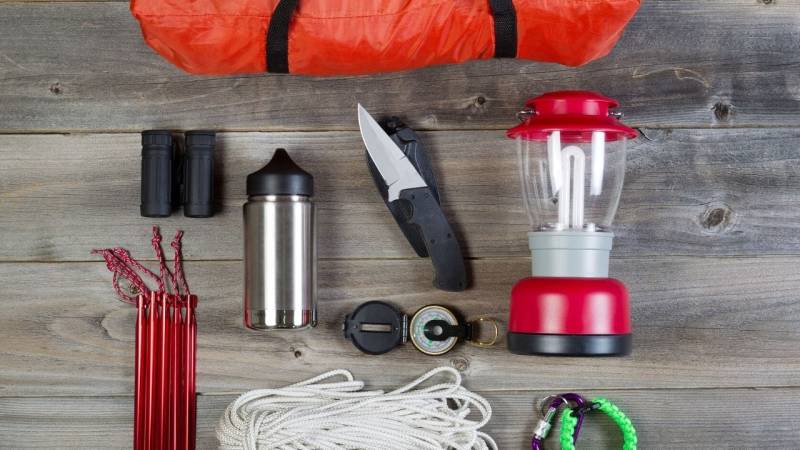
If you only have a budget of $1000, as in the above example, then certainly not.
Believe me, I could sing a song about how much I would like to have numerous prepping tools that constantly come onto the market, but occasionally, it's just not possible.
And don't let yourself be distracted by any "gear junkies" who constantly buy new equipment. You are following your path.
So keep an eye on your budget and stick with the cheaper option, which may not have a compass or star map, but only costs $20 and still provides everything you need.
Sharpen Your Survival Skills!
What will cost you very little or no money at all is sharpening your survival skills.
Think about what skills you will need when SHTF. Can you make a fire, or cook without electricity? Can you treat wounds, and do you know which berries and herbs you can safely consume?
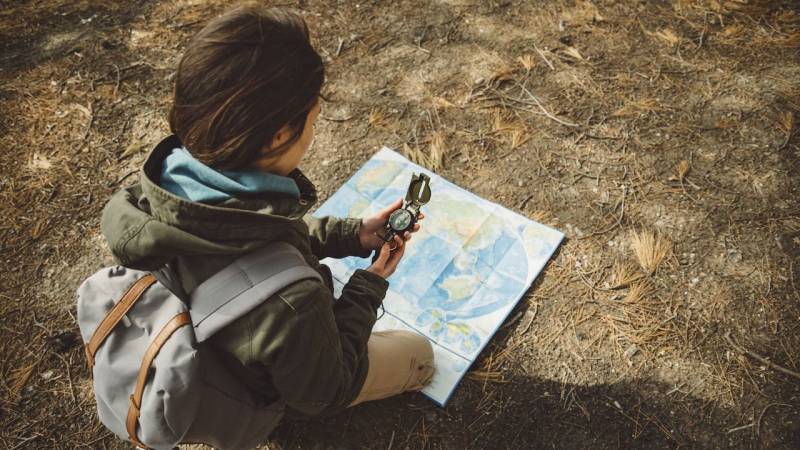
Do you know what skills or items you need to prepare for a complete gas outage in Germany (Gas crisis in Germany - what to do and how to prepare?) or a blackout (7 important items for a blackout/power outage)?
Practice tasks that technology would currently take care of for you. If you suspect you're missing the basic skills of every prepper, take a closer look at my article: The first 13 things a new prepper should learn, or browse around my prepping blog.
Find like-minded people!
Find people who have the same or similar goals, hopes, and dreams as you. The group is always stronger than the individual, and it always helps to surround yourself with people you can rely on in case of an emergency.
In the best case, you will create a small community that gathers more information over time, develops new networks, and attracts like-minded people who in turn support you with their knowledge.
This way you can acquire valuable tips and tricks, exchange experiences, and learn new things.
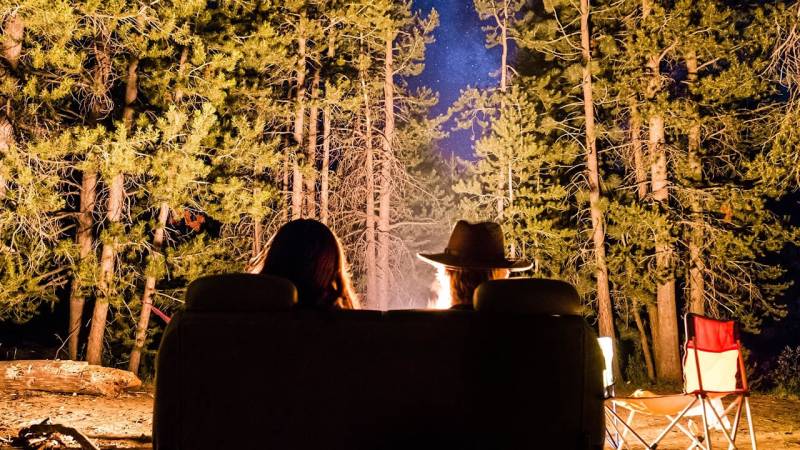
Involve those who are directly affected!
Both your family and close friends will usually notice what you are doing and be more or less directly affected. So involve them in a timely manner, explain your intentions and see if you can pique their interest.
You don't have to come straight to the point and reveal all your intentions. This is especially true if you know that not all of your views would be accepted.
So, only reveal what you are sure will be accepted.
For example, you can mention during your weekly shopping that it would be better to buy the cheaper milk and buy several of them instead of just one packet of the expensive counterpart. Bring your ideas into everyday life, so your loved ones can accept your new way of life and incorporate it into their daily lives.
No more wasting time or money!
Let's start with the waste of your most precious asset: time!
How much time have you already spent in your life playing video games, binge-watching TV shows, scrolling through social media, or doing other pointless things?
Probably more than enough – so it's time for that to stop.
It's not wrong to take some time for things that really make you happy and that you enjoy doing. However, you should also invest the time you have in things that will move you forward.
This is particularly true in relation to the top survival skills and prepping skills.

It's similar with your financial resources. Keep in mind that they are not infinite and you have to set priorities. Treat yourself occasionally, it mainly does good to your morale. However, focus on the important things that you really need.
As you can see, there are numerous ways to use your valuable resources sparingly without having to suffer any disadvantages.
Now let's take a look at some tips on how to get equipment and emergency supplies cheaply.
Tips on how to get equipment, food, and water cheaply
Recycling
If you can reuse things, you should do it as well as possible.
Recycling can help you in many ways to save costs and invest your existing budget in essential things.
For preppers, recycling is even more important. In a long-term disaster scenario, recycling enables you to:
- Manage the amount of waste you produce more easily
- Reuse valuable raw materials to make other important items
- Turn organic materials and food waste into a way to grow plants
- Keep your home and living spaces clean, even without access to modern sanitation facilities
Here are a few examples:
- Old canned jars: Use them as containers, transform jars into plant pots, use glass as an alarm system
- Plastic: Reuse as containers, make a basket, use as a container to collect water, make fishing traps, use as containers for growing plants
- Paper: Use as a fire starter, used for insulation, make paper concrete, create seed pots
- Metal: for animal traps, building a grill, building a gas hob
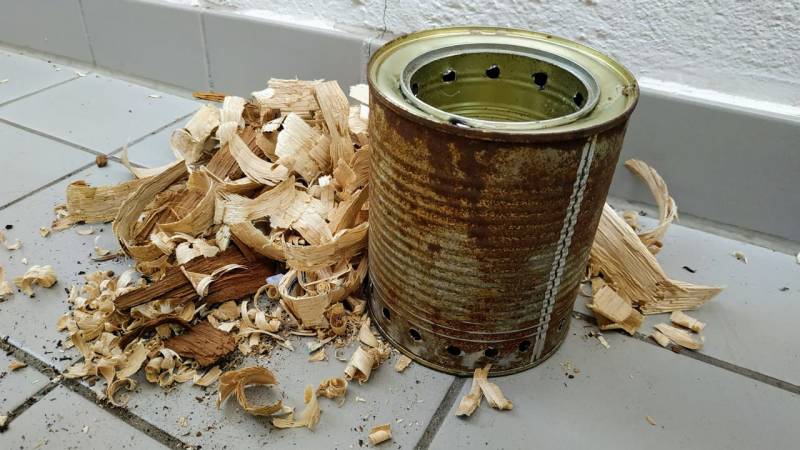
Also read
The ultimate recycling guide for preppers - This guide shows you how to recycle your waste in an emergency and create useful items from glass, paper, plastic, residual or organic waste.
Food Costs
Find out how to obtain food that costs less. If you find offers, you can stock up and save money.
But make sure to store the items properly and use what you buy.
In particular, rice in large quantities is much cheaper than the small bags from the supermarket. However, it is not sensible if you buy brown rice, and it spoils before you have used it completely.
Build food like quick-growing vegetables to lower your vegetable costs. Work with a gardener to trade gardening time for vegetables. You get experience AND food. If you don't own land, look for community gardens.
Reduce the amount of money you spend on food
In general, eating at home is much cheaper than eating out. A fast food meal can cost $6 ($7) ($24 ($28) for four people). Or you can buy potatoes or rice, beans, and some fresh vegetables for $24 ($28) and eat for a week.
Here are a few examples:
- I generally get several meals out of a large roasted chicken by eating one serving on the first night, then using the remaining bones to make broth and the remaining meat to make soup or other dishes.
- I do the same with broccoli. We eat the broccoli on the first day and on the second day I make soup from the broth I cooked the broccoli in.
- I fillet fish and the bones and scraps go into your pot for a fish soup.
Avoid pre-made foods
In general, pre-made foods are 2 to 40 times pricier than the basic ingredients. Cook from scratch instead.
Make large portions at once, can or store them to save time and prepare your own "fast food".
First aid kit
Your first aid kit may only consist of bandages and cleaning alcohol, scissors and tape.
You don't have to start immediately with buying tourniquets and advanced medical devices. Just get what you know how to use.
Buy items on sale (but not items you don't need)
Write down the products you use daily and how much you use for one or two weeks. This will give you an idea of how much you need to restock.
When you see these things on sale, stock up and buy them in bulk. These products include: food, toilet paper, shampoo, soap, hygiene products, and clothing.
But don't buy things you don't need or that are bad for you just because they're on sale.
If you have trouble controlling impulse purchases, get a shopping app that helps you stick to your prepping budget.
Repair and reuse
Repair something instead of throwing it away. Reuse things when you can.
A worn-out T-shirt can be a rag or cut into strips to tie vegetables together, or in an emergency it can be used as a charred cotton lighter – or even usable for wiping your bum.
Reduce your contract costs
If you're paying for Netflix, Amazon, and Disney, you're paying a lot per month. Eliminate what you don't need. Spend less time watching fiction and more time learning, AND save that money to spend elsewhere.
If you have an expensive smartphone contract, switch to a cheaper one. Use your old smartphone longer, and don't immediately buy a new one.
Use rechargeable batteries
Once you can afford good devices and things that require batteries, get rechargeable batteries, a charger, and a small solar charger.
You can also use this for camping, in emergencies to charge, and you won't need replacement batteries for at least 5 years.
Buy used items
With a limited budget, shopping at a second-hand store is wonderful. Flea markets are also great places to find tools, dishware, garden tools, etc. Often, you can get very well-used items for much less money. You'll find more about this in my guide "21 Survival-Prepping Items to Look for at Every Flea Market and Second-Hand Store."
Buy more durable items
Even though it may be pricier at first, you won't have to replace high-quality items as frequently, and they're less likely to break in an SHTF situation. Start with a good pair of work boots, gloves, durable pants, and a good jacket.
A prepper principle is: "cheap is expensive." If a product is too cheap (easily breaks), it's expensive because you have to pay for it repeatedly.
Start with food and water
Even after buying the nicest survival gear or building a sweet, off-grid bunker, you won't last long without life-sustaining things like food and water.
When budgeting for long-lasting food, decide how much money you want to spend on it. Budgeting on a monthly or weekly basis really doesn't matter. The important thing is that you have a budget and stick to it.
Budget for Food Storage
To get a good idea of the type and amount of food you should plan for, try using my Food Storage Calculator and read the article: What are the BEST Foods for Long-Term Storage?
Water Storage Budget
If you need help determining the amount of water to store, take a look at my Water Storage Calculator.
Having a few water bottles, jugs, and even two or three 30-liter water containers is definitely a good idea.
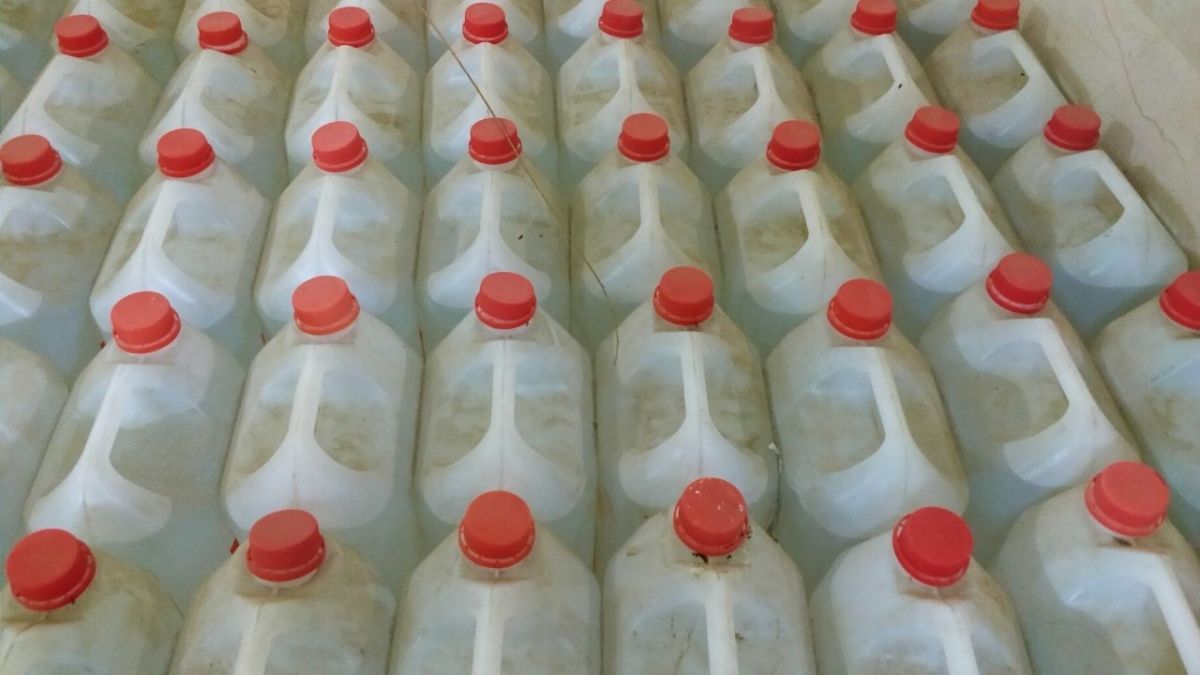
First, make sure you have a few packs of bottled water. They are cheap and easily obtained at any discount supermarket, and you can drink them individually without any problems.
Then, get some water containers to fill with tap water or other drinking water and clean them thoroughly. Store them in your garage or basement.
Read also
How long can water be stored? Does it go bad? - Learn everything about storing water: when it goes bad, how often you need to change your water for emergencies and how to keep it fresh.
Water Filter
For many, it may be impractical to store large amounts of water. In this case, it would be a good idea to budget 5 to $10 per week so that you can purchase a high-quality water filter in 5 to 10 weeks.
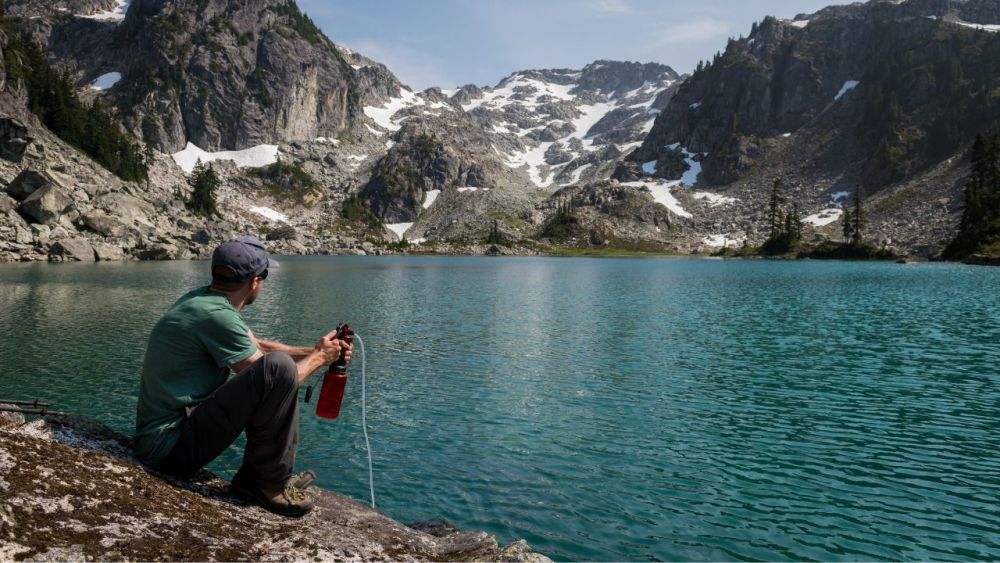
A water filter is great because it filters down to 0.02 micrometers to remove (sometimes) viruses, bacteria, and parasites, and reduces most heavy metals, taste, and chemicals.
There are water filters that can filter up to 50,000 liters of water with one filter.
A water filter may be worth budgeting for, especially if you need to quickly leave the city and have to leave your water canisters behind. Keep it in your Bug-Out-Bag for quick and easy access.
Also read
11 best water filters for outdoor, bushcraft, crises - Water filters are ideal for providing you with water while hiking, camping, bushcrafting, or in crises. Take a look at the best water filters now.
How to build a stockpile with $5 per week
One of the questions I am often asked is….
"I want to create an emergency stockpile, but how do I find the money for it?"
Can you spare $5 per week? If not… what can you remove from your week to find $5 to build your emergency stockpile?
How important is it to you to have a stockpile? Can you make it a priority over something else in your life that costs $5 per week?

Here are some tips on how to create a stockpile with only $5 per week
I am not a zombie prepper. I'm not preparing for the end of the world. I'm not preparing because I think aliens are going to attack Earth, and we might have to hide in bunkers until they're gone. I'm preparing to be prepared.
- What if the power goes out due to a blackout, and you can't cook, can't make phone calls, and can't heat your home anymore?
- What if prices are temporarily increased, so we can't afford to buy the basic things we normally get?
- What if food supply chains are interrupted, and we have to go without our grocery orders for a few months?
- What if there's a job loss where we need to save as much money as possible to pay other bills?
In situations like these, it's a good idea to have a small stockpile on hand.
Can you imagine only having food at home for a few days? I just can't imagine it!
Ok, back to building a stockpile with these $5 per week…
Before you start this challenge, remember: assess your stockpile realistically.
Don't stockpile things your family won't eat or use. If you don't buy what's planned for one week, simply buy double of something you'll definitely use in another week.
Creating a weekly shopping plan for an emergency stockpile
Make sure you don't spend more than $5 per week on buying the listed item. Furthermore, make sure you have suitable food storage containers for everything before buying.
- Week 1 - Spend $5 on rice
- Week 2 - Spend $5 on dried lentils, beans, peas
- Week 3 - Spend $5 on salt, sugar, pepper
- Week 4 - Spend $5 on flour
- Week 5 - Spend $5 on baking powder, yeast, and powdered milk
- Week 6 - Spend $5 on pasta
- Week 7 - Spend $5 on canned tomatoes
- Week 8 - Spend $5 on oats
- Week 9 - Spend $5 on baking powder, yeast, and powdered milk
- Week 10 - Spend $5 on nuts
- Week 11 - Spend $5 on everything else, such as canned meat, fish, and vegetables
Now comes the real challenge. How much of each of these items can you get for just $5 per week? Do your best to stretch this amount as far as possible.
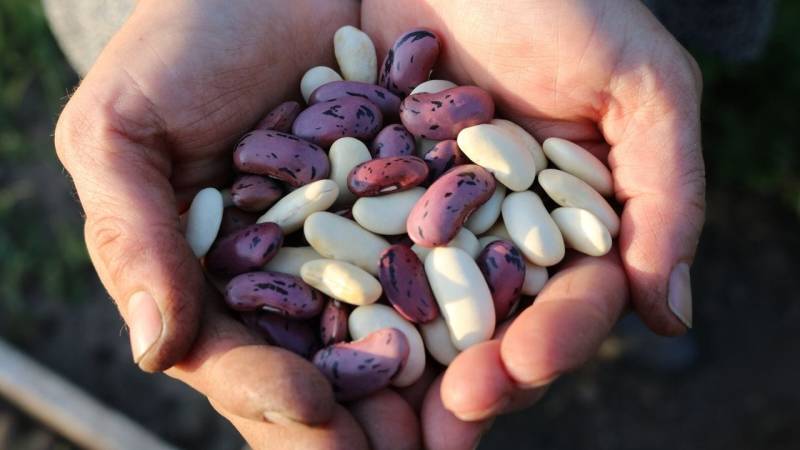
Are you ready to join me in this challenge? At the end of the 11 weeks, you won't have the biggest and most impressive stockpile ever, but you will have set aside a nice number of basics for a crisis.
Of course, a fully stocked pantry will include more products (hopefully, you can also preserve some meat, fruit, and vegetables), but this list will build a great supply of staple foods.
Also read
Can you live solely on beans and rice? Is it healthy? - Some people say that you can get all the nutrients you need from beans and rice alone. In this guide, I will investigate whether this is true.
Conclusion: Even with a small budget, you can prep properly, you just need the right mindset!
As you have read in this article, your budget does not have a giant impact on your prepping options, as you may have originally thought.
Actually, this is not surprising, since most people, when they hear about prepping, think of high-tech, self-made bunkers filled with tons of canned food and expensive gadgets.
However, what really matters in prepping is your inner attitude. You have a goal, want to be prepared for certain circumstances, and align your life accordingly.
So, if you have little to no money to prep, don't be discouraged.
You see, it's more about your own decisions than the contents of your wallet.


Author of the guide
Martin Gebhardt
Hey, I'm Martin. On my blog, you will learn the basics and numerous details about living in the wild. I think survival, bushcraft and the good life in nature are the keys to happiness. Find me here on Instagram or on YouTube. You can find more about my mission on the About Me page.
Was this guide helpful?
36 people found this guide helpful.
4.89 out of 5 points (37 Ratings)
Comments (0)
This post may contain affiliate links. So if you click on the links and make a purchase, I will receive a small commission at no additional cost to you. Click here, to learn more about it.


